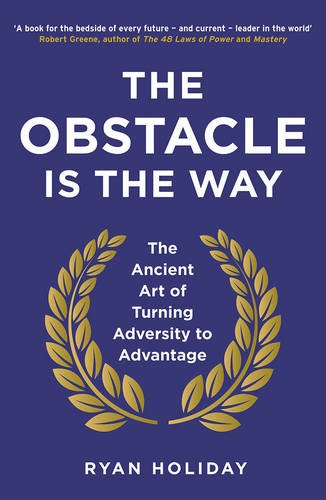Taking Right Action without Expectations
“One man, when he has done a service to another, is ready to set it down to his account as a favour conferred.
Another is not ready to do this, but still in his own mind he thinks of the man as his debtor, and he knows what he has done.
A third in a manner does not even know what he has done, but he is like a vine which has produced grapes, and seeks for nothing more after it has once produced its proper fruit. As a horse when he has run, a dog when he has tracked the game, a bee when it has made the honey, so a man when he has done a good act, does not call out for others to come and see, but he goes on to another act, as a vine goes on to produce again the grapes in season.”
— Meditations of Marcus Aurelius
A state of consistent right action without expectation of reciprocation, response, reward, or recognition. Marcus Aurelius makes this nirvanic state out to be ideal, but having a lack of expectations of others feels almost unnatural. Human beings have an ingrained desire to engage in all kinds of social transactions that have expectations tied to them. Person A does something because they believe that person B will respond in an expected way. This isn't negative. Expectations are the root of collaboration and the ability to collaborate in large numbers is one of humanity's few defining characteristics. Humans have a system of rewards that reinforces transactional social behavior. When the expectations we have for others are met satisfaction is experienced and when they are not met the opposite happens.
Even so, few people read this passage without feeling like the third man is in the ideal state. The lives of the men who have perpetuated ancient stoic ideals might hold a suggestion to how to become the third man. It's no coincidence that out of the three most famous ancient stoics one was a slave (Epictitus), one was the wealthiest man in Rome (Seneca the Younger), and the third was Rome's most famous and beloved emperor (Marcus Aurellius). This suggests that there might only be two natural paths to becoming the third man.
- Give it all up and let go of ownership over anything.
- Achieve beyond the point where you could ever want for anything.
On a personal level I have trouble imagining myself or anyone reading this to be capable of giving up all ownership, wants, and desires to take some kind of Buddha like path. There is something appealing about the second path to a stoic life. It seems like repeated and habitual right action towards the achievement of an internal greatness leads to a detachment from transactional social behavior. High levels of persistent achievement make us into the grape vine that just continues to produce without a thought of what it is doing. Habitual achievement turns us into people who take right action without a thought of what others will think or what is owed to us.
At all decision points what should matter most is not just the result of an action, but that right action was taken. Good results can be received without good intentions and bad intentions can lead to good results. In fact, results in themselves are neither good nor bad. The quality of a result is a matter of perception. We don't need well intentioned action, but simply constant intentional right action is what is required.
Further Reading:


The original article was published on limitlesstribe.com.

